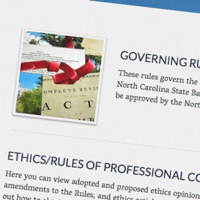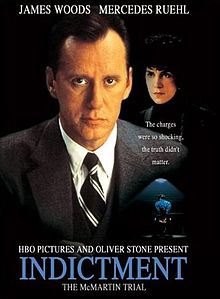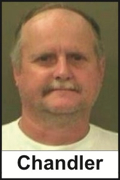Rascals case in brief
In the beginning, in 1989, more than 90 children at the Little Rascals Day Care Center in Edenton, North Carolina, accused a total of 20 adults with 429 instances of sexual abuse over a three-year period. It may have all begun with one parent’s complaint about punishment given her child.
Among the alleged perpetrators: the sheriff and mayor. But prosecutors would charge only Robin Byrum, Darlene Harris, Elizabeth “Betsy” Kelly, Robert “Bob” Kelly, Willard Scott Privott, Shelley Stone and Dawn Wilson – the Edenton 7.
Along with sodomy and beatings, allegations included a baby killed with a handgun, a child being hung upside down from a tree and being set on fire and countless other fantastic incidents involving spaceships, hot air balloons, pirate ships and trained sharks.
By the time prosecutors dropped the last charges in 1997, Little Rascals had become North Carolina’s longest and most costly criminal trial. Prosecutors kept defendants jailed in hopes at least one would turn against their supposed co-conspirators. Remarkably, none did. Another shameful record: Five defendants had to wait longer to face their accusers in court than anyone else in North Carolina history.
Between 1991 and 1997, Ofra Bikel produced three extraordinary episodes on the Little Rascals case for the PBS series “Frontline.” Although “Innocence Lost” did not deter prosecutors, it exposed their tactics and fostered nationwide skepticism and dismay.
With each passing year, the absurdity of the Little Rascals charges has become more obvious. But no admission of error has ever come from prosecutors, police, interviewers or parents. This site is devoted to the issues raised by this case.
On Facebook
Click for earlier Facebook posts archived on this site
Click to go to
Today’s random selection from the Little Rascals Day Care archives….
Click for earlier Facebook posts archived on this site
Click to go to
Today’s random selection from the Little Rascals Day Care archives….
Ever so slowly, progress made toward DAs’ accountability

ncbar.gov
July 1, 2016
“Prosecutors should have to disclose evidence of innocence obtained after a person is convicted, a North Carolina State Bar panel agreed Wednesday.
“The ethics subcommittee voted 3-2 at a meeting in Greensboro to support the general principle that a prosecutor’s duty to disclose innocence evidence continues after a defendant is sentenced, although the members didn’t settle on specific language. A federal prosecutor and a former district attorney opposed the motion, while three attorneys in private practice supported it….
“The North Carolina Conference of District Attorneys had said in a letter to the State Bar that prosecutors say that the rule is unnecessary….
“The panel is just the first step in a lengthy process that – if the rule is approved at each step – involves the full ethics committee, public comment, the full State Bar Council and finally, the state Supreme Court.”
– From “NC panel: Innocence evidence right continues after sentence” by Martha Waggoner of the Associated Press (June 29)
Read more here.
![]()
‘Yawning gaps in evidence’? Sounds familiar
Nov. 7, 2012
“Mass hysteria always makes perfect sense when we are trapped in it. It can take decades – or even longer – before the crazed irrationality of a particular episode shows itself for what it was.”
– From “When Mass Hysteria Convicted 5 Teenagers” in The New York Times (October 27)
Thanks to a new documentary by Ken Burns, the Central Park Five – all convicted of a widely publicized 1989 rape and beating – will soon return to the spotlight. According to the Times,
Burns depicts “the forces that led citizens, politicians, the media and the criminal justice system to brush past yawning gaps in the evidence in the case.”
Beyond a shared year on the timeline of wrongful prosecutions, these urban teenagers, black and Hispanic, seem to have borne few similarities to the Edenton Seven. But I could never read the words “yawning gaps in evidence” without thinking of a Little Rascals prosecution built almost entirely on the resolutely manipulated, deceitfully paraphrased testimony of children.
Not everyone was moved by HBO’s McMartin drama
 March 31, 2015
March 31, 2015
“…The watershed event marking the shift in public opinion on these (“satanic ritual abuse” day care) cases was the HBO airing of ‘Indictment: The McMartin Trial’ (watchable here on YouTube) in May 1995, wherein Ray Buckey, the child-molesting villain of the McMartin trial, was recast as the victim of a hysterical conspiracy theory.
“Five years earlier, no major television network would have dared question the infallibility of the testimony of ravished, innocent babes. A network like HBO is closely attuned to shifts in the public mood.
“Such TV dramas and feature films are generally more likely to respond to existing trends in public opinion on controversial issues than to break new ground, and so this docudrama marked a sort of closure on the issue in the public imagination, though the judicial system cannot shift direction so quickly.”
– From “The Metanarrative of Suspicion in Late Twentieth-Century America” by Sandra Baringer (2004)
Eighteen days before HBO broadcast “Indictment,” the North Carolina Court of Appeals had overturned the convictions of Bob Kelly and Dawn Wilson, but Kelly’s torture at the hands of the state was far from over: A year later he would be charged with raping a young girl outside the day care in 1987. Was prosecutor Nancy Lamb unable to “shift direction so quickly” – or simply unwilling?
Court cracks door – can Junior fit through it?
 Aug. 15, 2012
Aug. 15, 2012
The North Carolina Supreme Court won’t release its next batch of opinions until August 24, but its recent decision on a 2009 child sex abuse case could augur well for Junior Chandler.
On June 14 the court upheld the North Carolina Court of Appeals’ overturning of Patrick Loren Towe’s conviction in Surry County. Here’s the crucial part of the opinion:
“Under the North Carolina Rules of Evidence, a qualified expert may testify as to her opinion in her field of expertise if the testimony will assist the jury in understanding the evidence. An expert may not, however, testify as to the witness’s credibility or state that she believes the defendant is guilty.
“In sexual abuse cases involving child victims, an expert may not testify that sexual abuse has occurred without physical evidence supporting her opinion. An expert may not testify that the child has been ‘sexually abused’ if the testimony is based solely on the interview with the child-victim.”
In Patrick Towe’s case, only one expert witness so testified – in Junior Chandler’s it was six.
Without such a parade of “expert vouching,” Junior surely would have spent the past 25 years back home in Madison County instead of behind bars. How can the North Carolina Supreme Court now fail to acknowledge this?











0 CommentsComment on Facebook